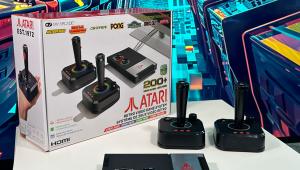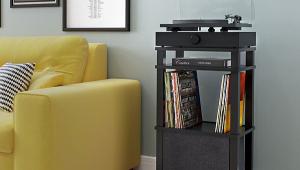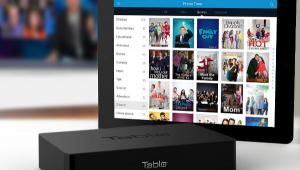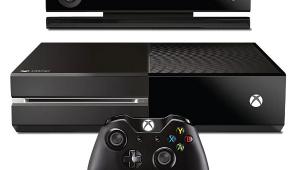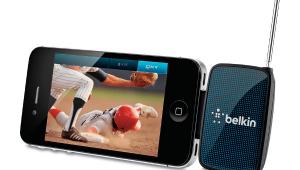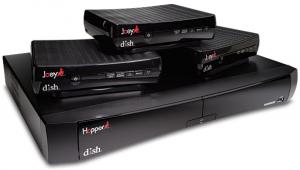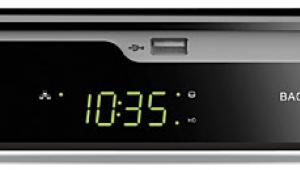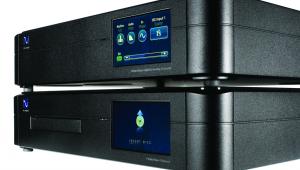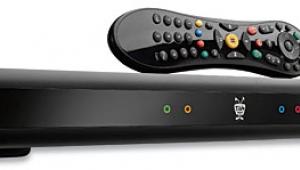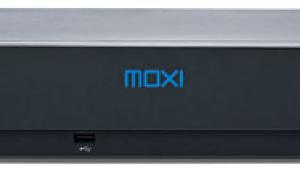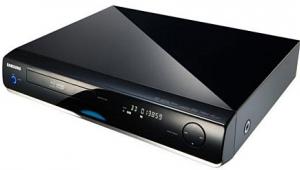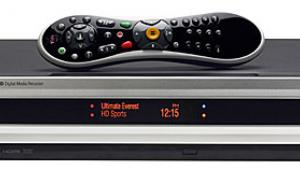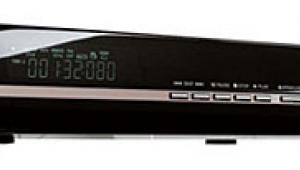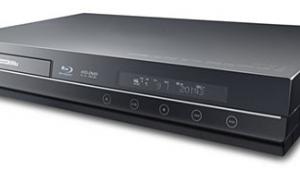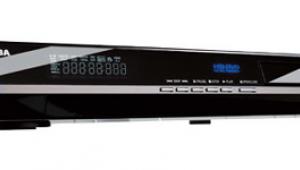I see common picture freezing.......even new never used DVD.'s...called Denon...so far...they have no clue how to fix it.
Shades of Blu Denon DVD-3800BDCI
The DVD-3800BDCI ($1,999) is the most expensive single-disc Blu-ray player to date. It is also Denon’s first flagship design. With the DVD-3800BDCI, Denon built on its previous Blu-ray transport, the DVD-2500BTCI (reviewed in Home Theater’s June issue). The DVD-3800BDCI adds full onboard decoding for the advanced audio codecs and a Silicon Optix Realta HQV video-processing suite. It’s also Bonus View (PiP) compliant, but it does not meet the hardware requirements to support BD-Live interactivity. Given the price point, I’m surprised that Denon didn’t offer an upgrade path to BD-Live. With BD-Live support available from the PlayStation 3 and several other standalone players, this may be an issue for consumers who want to take full advantage of the format’s interactive capabilities.

The DVD-3800BDCI is certainly one of the largest Blu-ray players out there. It shares its sexy lines and robust fit and finish with the DVD-2500BTCI transport. While the transport offers only a single HDMI output, the new player features a full complement of high-quality analog outputs for both video and audio. It also includes a 7.1-channel analog audio output.

The connections on the Denon’s back panel offer the best quality I’ve seen in a Blu-ray player. All of the analog jacks are exceptionally sturdy. Denon did not use the standard stamped lot you’ll find on bargain players. The component video outputs even offer a choice of standard RCA terminals or high-quality BNC connections. On the digital side, you can choose from HDMI, TosLink, and a digital coaxial output. Of course, the HDMI output is the only digital connection that takes advantage of next-gen lossless audio (Dolby TrueHD and DTS-HD Master Audio) at full resolution.
The front panel’s elegant curved façade matches the look of Denon’s recent high-end AVR line. There is an SD Card input on the front panel that serves a dual purpose. It enables an increase in onboard memory for the Blu-ray Bonus View PiP interactivity, and you can also use it for music and photo playback. Denon also included a button that selects the output resolution or engages the advanced noise reduction of its HQV video-processing suite.
 Video
Video
Denon’s DVD-2500BTCI Blu-ray transport relied on an HD decoder chip for all its playback functions. This worked great with standard Blu-ray playback, but the player fell short of Denon’s usual DVD performance. However, the DVD-3800BDCI’s top-of-the-line Silicon Optix Realta HQV video processor offers full HD and SD video processing. It also includes a host of advanced noise-reduction features.
When I compared the Denon DVD-3800BDCI with the transport, I saw immediate improvements. The DVD-3800BDCI’s performance with 1080p/24 Blu-ray playback looked better than any other players I’ve seen to date. It provided incredible detail and definition. I find it really hard to compare players with Blu-ray playback because they all look excellent across the board. However, when I watched the DVD-3800BDCI on my front-projection system, the Denon edged out other players I had on hand in both depth and fine detail.
The DVD-3800BDCI’s performance with standard DVDs was also first rate. I put the player through just about every test I know, and it came out shining. Many Blu-ray players lack great DVD playback capabilities, and this is the first player I would recommend to replace your higher-end, standalone DVD model. The performance fell in line with Denon’s flagship DVD-5910CI, which is one of the best DVD players I’ve ever tested.
The DVD-3800BDCI didn’t have any issues with 3:2-based 1080i material, but it didn’t properly deinterlace 1080i material with a 2:2 cadence. This surprised me, since processors I’ve tested that use the Reon (the other Silicon Optix chip) pass this test with no problems at all. This will impact the quality of a few Blu-ray concert discs on the market, but it won’t affect movie playback. The HQV noise-reduction feature applies to both HD and SD signals and does a commendable job with poorly encoded titles. While I don’t know if this feature will come in handy with Blu-ray titles, I can see people using it quite a bit with DVDs.
Audio
Denon went all out here. It duplicated the audio-processing section of its AVR-4308CI receiver so it could make the most of the next-gen lossless audio formats. The player can decode up to 7.1-channel DTS-HD Master Audio, Dolby TrueHD, and Dolby Digital Plus for output over HDMI (as multichannel PCM) or multichannel analog. High-quality 24-bit/192-kilohertz DACs feed the 7.1-channel analog outputs. All 7.1 channels feature full bass management and level controls for PCM signals sent via the HDMI or analog outputs. In my experience, level adjustments over HDMI are unique to the DVD-3800BDCI.
You can also select bitstream output on HDMI for all versions of DTS and Dolby Digital (including DTS-HD Master Audio and Dolby TrueHD). This gives you the flexibility of using either PCM or bitstream, based on your system’s needs. In bitstream, your pre/pro or A/V receiver (if so equipped) must perform bass management and level control. The HDMI outputs do not offer these features in bitstream mode.
I compared the Denon’s advanced audio decoding (to PCM over HDMI) with the bitstream output, and I actually preferred the bitstream approach. Although I could adjust the Denon’s levels, I still found the LFE a bit weak with various test material. This seemed to be more common with uncompressed multichannel PCM soundtracks than with Dolby or DTS flavors of lossless audio. The DVD-3800BDCI doesn’t support internal decoding of DTS-HD High Resolution soundtracks, but it passes the bitstream just fine. Since my processor decodes them all, I just stuck with the bitstream output. I am unclear why Denon didn’t support this seldom-used DTS codec since the AVR-4308CI will, and because full Master Audio support is available. [DTS-HD High Resolution Audio operates at higher data rates than standard DTS, but it’s still a lossy compression scheme, since it does not provide bit-for-bit reconstruction of the original signal, as Dolby TrueHD and DTS-HD Master Audio purport to do. It has not been used on many Blu-ray titles so far.—Ed.]
In Use
Let’s face it, people are used to relatively fast responses from their standard DVD players. When they move on to the next generation, they probably don’t expect a big step down in speed. But with most Blu-ray players, that is what they get.
The DVD-3800BDCI is no exception. The player moves painfully slow, even compared with other standalone designs on the market. Its setup, disc loading, and general navigation are all sluggish. The Denon’s loading times pale in comparison with the PlayStation 3, and it is about twice as slow as the other two players in this roundup. I would not expect this kind of performance from a flagship player at this price point.
The player’s internal setup menu also frustrated me. It offers vague instructions for setting up the audio outputs. The player also responded slowly to remote commands, which further added to my frustration. The speed improved a bit with DVD playback, but I don’t think that is the player’s main focus. Denon needs to make a big turn on this aspect of player performance. Since the PlayStation 3 provides lightning-fast operation and great feature support, manufacturers need to offer compelling reasons to invest in a top-dollar standalone player.
Wrapping It Up
Although the DVD-3800BDCI lacks BD-Live compatibility, Denon delivered a solid entry to the reference design category. The video performance for all video sources blew me away. If you can get past the sluggish operation, you’ll find some of the best HD images available with Denon’s superior build quality and design.
Highlights
Step-up Blu-ray video performance
Sluggish navigation and load times
Exceptional build and design quality
Excellent standard-definition video processing
Full 7.1 analog and digital audio support
- Log in or register to post comments

